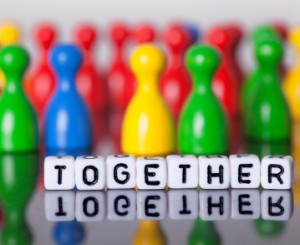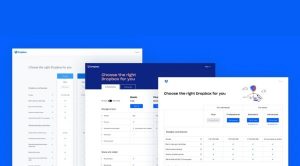It’s no surprise as we look to the future of work the needs of employees are becoming increasingly demanding. In fact, many of what we continue to call benefits are simply expectations of what new generations are looking for in their work. Careers and jobs are very much seen as an integrated part of their life vs. a separate bucket.
The function of HR has also changed. We’ve seen it evolve from a transactional, admin player to be an advocate for the business yet no real evolution to be the people advocate they’re called to be. Let’s face it, with a title like, “Human Resources” the assumption is to serve people first, business second. Which has often led to the less than glamorous reputation they hold in the workplace since it hasn’t always been the case.
In other instances, they’ve also been viewed as not being a revenue-generating part of an organization or simply misunderstood on what their purpose is in a business. HR can often be undervalued and unappreciated, to say the least, and are often at the mercy of the direction of the business despite their professional guidance to that business.
The truth is HR holds many responsibilities, by far the biggest being guidance and support for their employees within an organization while providing strategic value to the executive management team through all priorities touching their people strategy. From recruiting to employee relations, training and development, compensation/benefits to name a few, more of these responsibilities than not touch people.
While the function has evolved from when I first entered this field, a multi-generational workforce will yet again cause this function to flex its muscles and exercise adaptability, strategic value and flexibility to say the least. Many in HR, however, simply are missing the very soft skills of this function – compassion, empathy and sensitivity to name a few. They are the soft skills that call for connection, humility and for the more ‘human’ skills to lead with and embody what this role is all about.
In a world where technology is constantly changing and quickly finding its way in optimizing jobs and even automating many, these are also the soft skills that can not be done by a robot or AI (artificial intelligence). Thereby increasing the importance of these skills in the role of HR and increasing its value. They are more challenging to measure for sure, however, they are also the skills gap that seems to be increasing according to LinkedIn’s data.
More importantly, if you’re going to be in a role where amongst many other things, your purpose is to serve people – then do so with a passion for people at the core of what you do. The qualities or soft skills listed above that somewhere along the evolution of corporate we’ve been taught don’t belong in the workplace or in corporate, are the very soft skills that do belong in Human Resources. They’re the intangible soft skills that we all possess that you can’t ‘buy’ or earn as a credit, certification or through an academic degree.
They’re also the very skills that will set you apart and help you connect with a multi-generational workforce. Multiple generations surely have their differences in the workplace, including communication styles, working styles and even preferences on work environments, but everyone understands the human connection and what it means to be human. That language is universal.
It takes courage to go against the grain in the workplace where the norm sounds like – work is separate from personal life, emotions and vulnerability don’t belong at work, working hard and overtime is how you succeed and my favourite, don’t ask for any time off or dare call in sick or you’ll be viewed as lazy.
But again, times are calling for new ways of leadership – at all levels, not just our CEO’s. Everyone has a definition of what leadership looks like and means. One that I think most can agree on is having the courage to go first and leading by example. Nothing changes if nothing changes. Go first. Dare to be different. Dare to lead and lead with your heart and yes, you can still use your head.
No matter where you are in your career or what level you hold in Human Resources, especially at the executive level, consider what your role is and remember who you’re serving. Leading by example can only work if you’re brave enough to take the first step into a new way of showing up. If you’re in a career where people are at the core of what you do, consider the soft skills that are imperative to the success of your position.
Business & Finance Articles on Business 2 Community
(59)
Report Post




